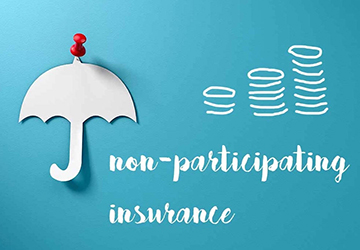
The Impact Of 5G On Insurance Technology And Services
The insurance industry is on the brink of significant transformation due to the introduction of 5G technology. Faster than its predecessors, 5G offers ultra-low latency, higher bandwidth, and more reliable connections, enabling a more connected and data-driven world.
The insurance industry is on the brink of significant transformation due to the introduction of 5G technology. Faster than its predecessors, 5G offers ultra-low latency, higher bandwidth, and more reliable connections, enabling a more connected and data-driven world.

For insurers, 5G is not just about quicker downloads or faster streaming speeds—it's about fundamentally changing how insurance services are delivered, risks are assessed, and how customer interactions are handled. Let's explore how 5G is reshaping the insurance landscape.
Faster And Smarter Data Collection
Data has always been the backbone of insurance, whether used to assess risks, determine premiums, or resolve claims. With 5G, the volume, velocity, and variety of data available to insurers will skyrocket. Wearable devices, smart homes, connected vehicles, and other Internet of Things (IoT) gadgets generate vast amounts of real-time data. With 5G, this data can be processed faster and more accurately.
For instance, telematics-based car insurance already uses real-time data on driving habits. With 5G, this data can be collected continuously without lag, offering more precise insights into a driver's risk profile. Home insurers can monitor smart home devices to detect leaks, fire risks, or security breaches in real-time, allowing for proactive intervention instead of reactive claim processing.
Enhancing Customer Experience
The relationship between insurers and customers has traditionally been viewed as transactional, but 5G can make it more dynamic and engaging. Imagine quicker claims processing due to real-time video assessments or chatbots powered by artificial intelligence (AI) that can handle more complex queries because they continuously learn from richer datasets.
5G's low latency enables real-time communication through various channels like video calls, augmented reality (AR), and virtual reality (VR). An example of this is virtual damage assessments. With 5G, an insurance adjuster can virtually inspect damage through a high-quality video stream, allowing quicker resolutions. Policyholders can also receive instant notifications and updates on their claims, significantly reducing waiting times and enhancing overall satisfaction.
Automation And Smart Contracts
Automation is set to leap forward with 5G. Smart contracts are self-executing contracts with predefined conditions coded into them and can significantly benefit from 5G technology. Take life insurance payouts, for example. The process can be cumbersome and slow due to paperwork and manual verification.

With 5G, IoT devices and other connected platforms can automatically verify the insured event (like a medical condition or death) and trigger a payout without human intervention, provided the bright contract conditions are met.
This automation only applies to claims. Policy renewals, updates, and risk assessments can be automated, making the insurance process smoother and more transparent for customers. 5G enables real-time updates and instantaneous contract adjustments, reducing the lag that could lead to disputes or delays.
Improved Risk Management And Underwriting
The crux of insurance is risk management. The more accurately an insurer can assess risks, the more effectively it can price policies and manage potential losses. 5G offers a leap forward by providing access to more prosperous and varied data sources. For instance, real-time data from connected devices can offer insurers insights into a customer's behaviour, health, or environment, allowing them to tailor more relevant and competitively priced products.
In life and health insurance, wearable devices can continuously track health metrics like heart rate, sleep patterns, and physical activity. With 5G, this data becomes even more granular and immediate, enabling dynamic underwriting models that evolve in real time. This creates a win-win scenario where customers get personalized policies while insurers better manage their risks.
Revolutionizing Claims Processing
Claims processing has long been a pain point for both insurers and customers. It often involves a lot of paperwork, manual checks, and back-and-forth communication. 5G, combined with AI, could change this. With the ability to instantly upload high-quality video evidence, automated assessments can be made in minutes instead of days. Imagine a world where a customer involved in a car accident can stream live footage directly to their insurer, which then uses AI to assess the damage and offer an immediate payout.
This speed and automation enhance customer satisfaction and lower insurers' operational costs by reducing the workforce needed for claim verification and processing. These savings could be passed on to customers through lower premiums in the long run.
New Insurance Products And Business Models
With 5G, entirely new types of insurance products and services could emerge. For example, parametric insurance, which pays out automatically when a specific event occurs (like a natural disaster), could become more mainstream. Data streams powered by 5G can continuously monitor conditions like weather patterns, triggering an instant payout if predefined parameters are met.
Usage-based insurance (UBI) models could also become more prevalent. With 5G enabling continuous data collection, insurers can offer pay-as-you-go policies for services like car insurance. Customers who drive less or engage in safer driving behaviours could receive instant discounts or lower premiums, creating a more personalized and flexible insurance experience.
The Rise Of AI and Machine Learning In Insurance
Integrating AI and machine learning (ML) with 5G technology will likely be a game-changer in the insurance sector. 5G allows insurers to process and analyze enormous datasets in real-time, improving customer interactions and helping identify fraud patterns more efficiently.
Machine learning algorithms can scan through claims, detect inconsistencies, and flag suspicious activities quicker than human analysts ever could. With 5G, AI can continuously learn from new data, making the insurance process more intelligent and responsive.
Conclusion
5G technology is set to catalyze change in the insurance industry. By enabling faster data collection, improving risk assessments, enhancing customer experiences, and introducing new types of insurance products, 5G is laying the foundation for a brighter, more efficient, and customer-centric insurance ecosystem. While challenges remain, particularly around data privacy and security, the benefits of 5G could outweigh these concerns, driving insurers to rethink and reinvent their services for the digital age.





